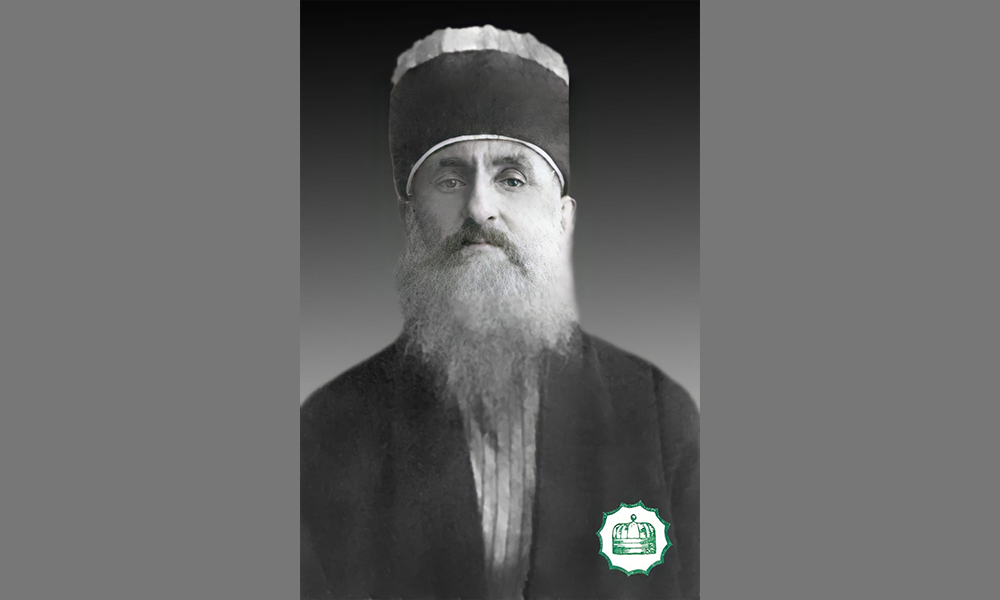
On January 28, 2022, the 165th anniversary of the birth of father Baba Hajdar Qencka is commemorated in Korça.
Baba Hajdar Turani-Qencka, was born in 1857, in the village of Qencka, in the prominent area of Gora-Opar, a village located in the heart of the mountains, surrounded by endless forests. There was born and took the first steps in life, Hajdar Qencka, who instead of school books, is forced, like many of his peers, to graze and take care of livestock. The great events of 1878-1880 could not pass without echo in Gora-Opar and his native village. The autonomist movement that was strengthening day by day at that time, as it is known, found the full support of the Bektashi clergy, who turned the tekkes not only into hotbeds of religious education, but also of patriotism. At the same time, well-known patriots, ordinary people, young people and even children gathered in these tekkes. Thus, Hajdari, together with some friends, approaches the tekke of Qesaraka, tekke known at that time not only in that area, but much wider. From the first days of his stay in this tekke, Hajdari began to strengthen his worship of the Bektashi faith and the need to be as often as possible in places of worship. So he does… He begins to be present in the Bektashi tekke of Melçan, in that wonderful place, blessed by God, where not only the body was filled with fresh air, but also the soul with meditations full of purity. He admires the life of the dervishes there and is closely acquainted with Father Hyseni, who, as a good parent, took care of everyone who stepped on the courtyard of the tekke. This paternal compassion, this spiritual closeness, beautiful customs and traditions, come for centuries from the followers of Haxhi Bektash Veliu, could not pass without leaving a trace in the soul of the boy from Qencka. He takes his hand to father Hysen Melcçani and a thousand days and nights later, throws the white bow of the dervish on his shoulder. This happened in the autumn of 1896. This important event for the clergy, is revived later and in the motivation of its decoration on the occasion of the 25th anniversary of the Independence of Albania, in 1927, where among other things it is said: "Since 1896, he has been dressed as a Bektashi dervish, next to the late father Hyseni and being near him, day and night, he could get the best advice from father Hyseni. Thus, the feeling of patriotism enters your heart, so deep that in a short time, he became one of the most ardent patriots of Melçan, spoke about patriotism and pushed them to rise up against the Turkish government, to liberate the homeland. ..… ”.
At this time, seeing his devotion to the path of God, but also the soul imbued with love for the homeland, father Hysen Melçani entrusted to dervish Hajdari, the great mission of setting up a Bektashi tekke in Turan, near the city of Korça. The purpose of setting up this tekke was to bring to life a Bektashi shrine there, but also to bring believers from the city closer, because the road to Melçan was difficult. The establishment of a new tekke in Turan was welcomed by the faithful, well-known intellectuals of the region and the entire progressive community, who joined the ideas and tireless work of the dervishes from Qencka, being close to them at all times.
According to the documents of the time, it turns out that there were seven local families, from Turan, who donated from their land, to make the tekke as good as possible. Other believers brought cattle or other aid there, and within a year and a half the Turan tekke was fully operational. At this time, Baba Hyseni gives the dervish of Turan the title Bektashi "Baba".
From 1900, the Turan tekke becomes a warm hearth for all Albanian patriots from Starova to Vithkuq, from Devolli to Kolonjë and beyond.
In the years 1907-1908, many Albanian patriots, members of the club of Manastir, organized secret assemblies in the rooms of the tekke, wanting to liberate themselves with rifles and pens, from the long Ottoman night. Books and primers in the Albanian language were collected there, to be sent to the villages of Korça, as well as flour and pellets were collected for the heroes who fought in the mountains.
The Turkish kajmekam of the city and the structures of the time are alarmed by this fact and threatens the cleric by telling him that he would burn the tekke, as he had done in August 1907 with the tekke of Melçan.
In 1909, father Hajdari went to the Albanian district of Thessaloniki and Florina,
collected aid for the national movement. In his consciousness was deeply rooted the belief that the eyes and hearts of Albanians had to be opened in order to aim for the freedom of the country.
His trips to Starovo, Korça and Kolonjë, but also to Florina and Kozan, caught the eye of the Turkish authorities at the time. They called him several times in Korça, threatening him that
the High Gate would not forgive him, even though he was wearing the clothes of a Bektashi cleric.
In the official documents of the time (Central Archive of the Albanian State, fund 170), for the patriotic activity of the clergy, among other things it is stated: “… How propagandist of the Albanian movement, in 1911, formerly sent by father Hyseni to Thessaloniki, where Albanians were. Here, he was captured by the Turkish government and handcuffed, imprisoned and imprisoned in Korça prison for eight months. … While in 1912, united with the Gora detachments, led by father Hysen Melçaani, the former among the first and the brave who could carry out the orders of the myrshid and lead the detachments, in the way that the honor of the true Albanian begged . ”
In the difficult years 1913-1914, when the southern borders of Albania were constantly endangered by the Hellenic annexationist appetites, father Hajdar Turani would be at the forefront of the fighters defending the newly proclaimed Albanian sovereignty. Next to him, in these battles, is his nephew, dervish Filja, who, taking up the Bektashi faith, swore that he would keep lit the candle of Haxhi Bektash Veliu, as well as the flame of Albanianism.
In the early 1920s, the Turan tekke was growing day by day. Benevolent, but also numerous myhib, from Gora-Opari, Gjergjevica, Devolli and Starova, filled the square and rooms of the tekke, seeing in the Bektashi faith, the hope for national prosperity. In their memory, these believers, have preserved with special care, the great soul
of Hajdari's father.
He passed away in February 1928
Prepared by:
Nuri ÇUNI
Kujtim BORIÇI
